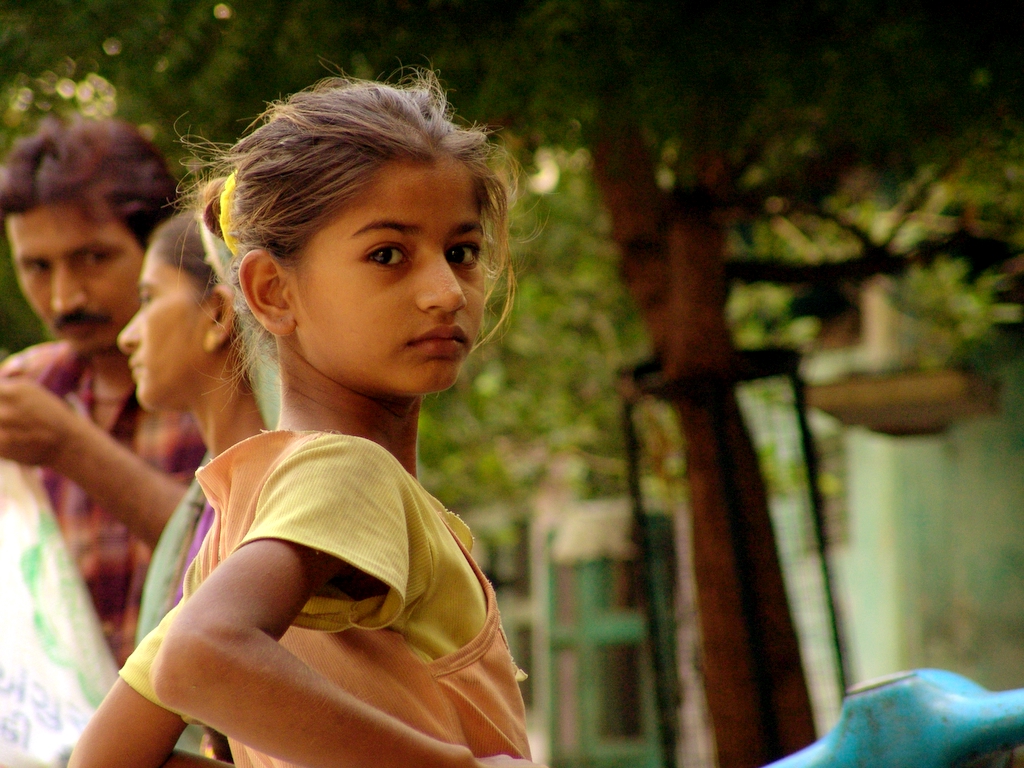
Over 60 million girls born in India are married off, against their will, before the age of 18 –greatly due to the fact that a girl is only valued for her ability to produce offspring and playing the part of homestay mother. Even then, most mothers are not awarded nearly enough respect for their responsibilities and place of power in their own homes.
While the state of Haryana is one of India’s richest, it is interestingly its least progressive in terms of female liberties. Haryana’s government launched a scheme in 1997 to fight this institutionalized undervaluation of women by awarding 500 rupees for the birth of a baby girl, or less than half a week’s pay.
The Apni Beti Apni Dhan (Our Daughters, Our Wealth) is a Chandigarh government cash-initiative program charged with raising the value of female children born into Indian families. It grants families that meet certain prerequisites 500 rupees for each baby girl, with an additional savings bond to be redeemed when the daughter reaches 18 years of age.
That daughter better not pull a Juliet and fall in love recklessly, for if she remains unwed by her eighteenth birthday, she can redeem the bond for 25,000 rupees – the equivalent of 500 U.S. dollars. That is incredible given that 25,000 rupees are, on average, one-third of the yearly per-capita incomes in the state of Haryana.
Follow-up studies demonstrated that in greater parts of India, women now account for 15 percent of CEO positions in comparison to the United States’ low 3 percent. Despite the progress, there are still lingering concerns about the overall efficacy of the scheme.
No one can be sure the money finally earned by the girl’s eighteenth birthday will be used for educational purposes, or if the girl will even have a say in how it is spent. There is the off chance that the family could misuse this money, perhaps as dowry in order to marry the daughter off against her wishes after cashing in. In other words, there are no precautionary measures making sure this money is not just a savings bond for 18 years instead of a true incentive and fight for Indian women’s opportunities.
While the prerequisites may be justified in order to maintain the security of the progress, they inevitably create bias. The prerequisites for participation in the program require that the family is below the poverty line, pays no income taxes, has no official role in the Indian government, and has no more than two children. Again, while there is presumably logical reasoning behind these quotas, they remain incredibly narrow. The expansion of this program, whilst already fighting intensely engrained family values, does not look promising under the current restrictive provisions.
Yet, does the program’s positive results in the past decade indicate that economic incentives are required in order to institute ideological shifts in gender-biased countries? Just to treat a baby girl as a human being with the power to dictate the direction of her own life?
One could be on the side of Desmund Tutu and numerous advocates who liken this issue to that of slavery, asserting that one must fight fire with fire. In certain families, a newborn girl worth at least $11 is better than nothing.
Or, one could seriously question the integrity of the fight in which we are engaging in order to help these women. If we conclude that the only way to remedy such inequalities is through economic incentives, aren’t we just choosing the easy way out?
Surely changing family tradition, and especially one with a strict cultural foundation, is not easy and this program alone won’t change the consistency of child marriage that continues today. Child marriage is highly correlated with female illiteracy, health problems for newborns and the lack of an important female role in the job market.
My suggestion? Either broaden the prerequisites to reach those families who just barely miss the mark but have good intentions regarding the welfare of their daughters, or design a stronger anthropological program that can delve into the root of the problem itself, instead of simply paying it off.
